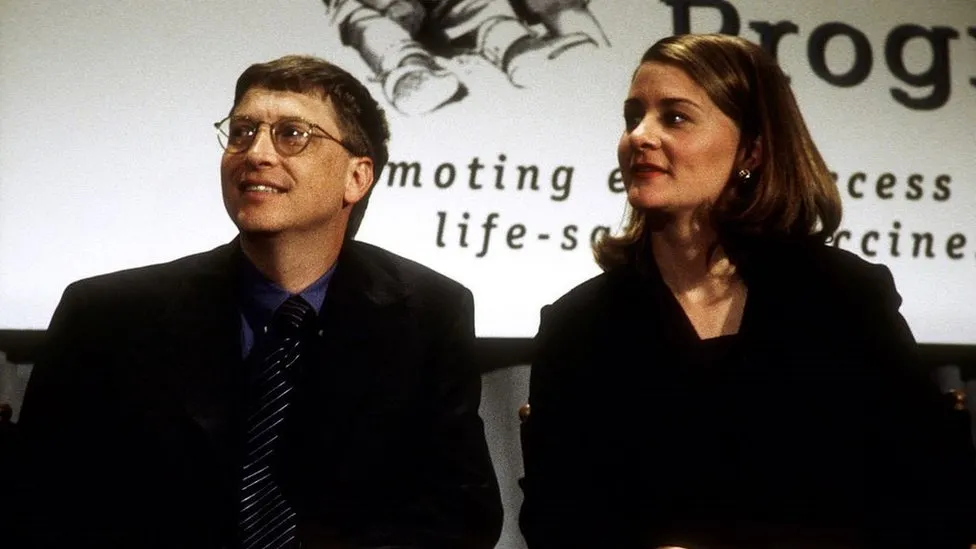Bill Gates is a household name that is synonymous with technology and innovation. Born on October 28th, 1955, in Seattle, Washington, William Henry Gates III, popularly known as Bill Gates, is an American business magnate, software developer, and philanthropist. He is the co-founder of Microsoft Corporation, the world's largest personal-computer software company. Bill Gates is one of the wealthiest people in the world and has become an inspiration to many aspiring entrepreneurs.
Early Life and Education
Bill Gates was born to Mary Maxwell Gates and William Henry Gates Jr. He has two sisters, Kristi and Libby. His father was an attorney, and his mother served on several corporate boards. As a child, Gates was an avid reader, and his parents encouraged him to pursue his interests. In 1967, at the age of 12, he enrolled in Lakeside School, a private preparatory school in Seattle. It was at Lakeside School that Gates first became interested in computers.
In 1973, Gates enrolled at Harvard University, where he studied mathematics and computer science. However, he dropped out of college in 1975 to start his own software company with his friend Paul Allen.
Career
In 1975, Gates and Allen founded Microsoft Corporation, which quickly became the world's largest personal-computer software company. Gates was the company's CEO and chairman until 2000 when he stepped down from his position as CEO but remained as chairman of the board. Under Gates' leadership, Microsoft developed some of the world's most popular software, including the Windows operating system, Microsoft Office, and the Internet Explorer browser.
In addition to Microsoft, Gates has also been involved in other business ventures. In 1986, he founded Corbis Corporation, a digital imaging company. He also co-founded TerraPower, a nuclear reactor design company, and Cascade Investment, a private investment firm.
Philanthropy
In addition to his business ventures, Gates has also been actively involved in philanthropic work. In 2000, he and his wife, Melinda Gates, founded the Bill and Melinda Gates Foundation, which is the world's largest private charitable organization. The foundation's focus is on improving healthcare and reducing poverty in developing countries, as well as improving education in the United States.
The foundation has donated billions of dollars to various causes, including funding research to develop new vaccines and treatments for diseases such as malaria, tuberculosis, and HIV/AIDS. It has also worked to improve education in the United States, including funding programs to improve teacher quality and increase the number of low-income students who attend college.
Personal Life
Bill Gates married Melinda French in 1994. They have three children, Jennifer, Rory, and Phoebe. The Gates family has a net worth of over $100 billion, making them one of the wealthiest families in the world. They had divorced recently.
Controversies
Despite his philanthropic efforts, Gates has also faced several controversies throughout his career. One of the most significant controversies is his role in Microsoft's antitrust lawsuit. In 1998, the US Department of Justice filed a lawsuit against Microsoft, alleging that the company had engaged in anti-competitive practices. The lawsuit accused Microsoft of using its monopoly power in the computer software industry to stifle competition and force other companies out of business.
Gates also faced criticism for his business practices, including his aggressive approach to competition and his focus on market domination. Some critics argue that Microsoft's success was due to its ability to dominate the market, rather than its ability to create innovative products.
Conclusion
Bill Gates is a visionary entrepreneur, a successful businessman, and a dedicated philanthropist. He has revolutionized the computer industry and has made a significant contribution to the advancement of technology. He has also used his wealth and influence to make a positive impact in the world through his philanthropic efforts. Despite facing several controversies throughout his career, Gates remains one of the most influential and respected figures in the world of technology and business.
In recent years, Gates has been actively involved in global issues such as climate change and the COVID-19 pandemic. In 2020, he stepped down from the board of Microsoft to focus on his philanthropic work and to address global issues such as the pandemic. Through the Bill and Melinda Gates Foundation, he has donated billions of dollars towards developing vaccines and treatments for COVID-19, as well as addressing other public health challenges around the world.
In addition to his philanthropic work, Gates has also been a vocal advocate for education and the importance of technology in advancing education. He has invested in several education-related initiatives, including the creation of the Bill and Melinda Gates Foundation's Education Program, which focuses on improving education in the United States.
Bill Gates' legacy as a technology pioneer and philanthropist is one that will continue to inspire generations to come. He has demonstrated that with innovation, dedication, and a commitment to making a positive impact in the world, one can achieve incredible success while making a difference in the lives of others.


Comments
Post a Comment